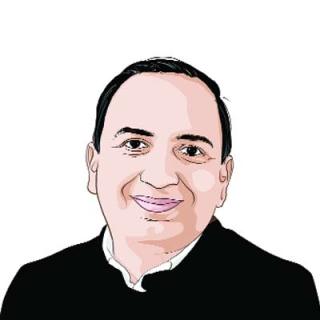If political risk of using CBI, ED is so high, why would BJP do it?
Like the use of religion in politics, anti-corruption works more as a totem for the consolidation of political identity than a genuine desire to clean the system.

The politics of “anti-corruption” in India presents a fascinating spectacle. Like the use of religion in politics, anti-corruption works more as a totem for the consolidation of political identity than a genuine desire to clean the system. For long, there was an unwritten understanding that the protocols of politics required nods and winks to the issue of corruption, but no real action. This is, in part, because the conditions for a genuine anti-corruption politics do not exist.
A genuine anti-corruption politics requires institutions that can credibly project the distinction between political vendetta and a genuine search for truth. No political party could create those institutions without risking some of its own people. The wider political resonance of corruption as an issue was debatable; people looked for effectiveness and often the corrupt were effective. There was also a strange deference to democracy in the reluctance to take on corruption. After all, prosecuting leaders who were popular was also, in some ways, indicting the sentiments of their supporters, who deeply identified with them. Even in their corruption, many leaders represented social movements. In fact, the perceived risk that if you prosecuted a popular leader with a big political base, you could actually consolidate their supporters, was quite high.
In 2014, this low-level equilibrium seemed to change in three respects. First, there was a nascent social movement that, briefly, offered tantalising possibilities of thinking of a politics outside corruption. This movement delegitimised UPA 2. The BJP was the biggest beneficiary of the space that opened up. But the movement dissipated: Some of it got absorbed into routine politics. But there is also a recognition that anti-corruption can unleash a yearning for authoritarianism. Faced with that prospect, a little venality here and there seems something we can live with.
Second, there seemed to be a moment when independent non-elected institutions like the CAG or even the Supreme Court could do a credible job of mediation. But the credibility of these institutions also diminished, and their interventions seemed to be more like power trips in disguise than principled takes on corruption. Third, the prime minister staked his own identity around a moralistic view of corruption with three promises: An incorruptible government, a return of the illegal proceeds of corruption, and an expectation amongst his supporters that the guilty would be prosecuted. The last expectation, in core BJP circles, has often been centred on the Gandhi family, which even today can draw them into paroxysms of hate.
But the BJP’s anti-corruption plank was going to run on empty. First, it was not going to relinquish control of all institutions of the state. But without credible institutions you cannot project the distinction between vendetta and genuine cleaning. The BJP needed that control, in part, to protect its own. Just witness the way in which charges are filed and dropped against riot-accused in a state like UP. So no real institutional reform was going to happen. Second, demonetisation inflicted immense suffering compared to the paltry gains that accrued from it. Third, whatever may be the truth of the matter, the handling of the Rafale affair took the sheen off the government’s claim that it had nothing to hide. Fourth, and most importantly, the more authoritarian a regime gets, the more anti-corruption works as a tool for consolidating power. Some of those being targeted may indeed have something to answer for. But that is merely an incidental effect of trying to consolidate power.
It is against this background that we can perhaps better understand the new found zeal of institutions like the CBI and ED (or shall we stop calling entities like the CBI institutions at all) to go after political targets from Mamata Banerjee to Robert Vadra. What is striking about this new-found zeal is the air of desperation that attached to it. The evidence of desperation is the self-defeating logic inherent in its actions. When you target political opponents, it is usually wise not to target all of them together. But in doing so, the government has pulled off the astonishing feat of uniting the Opposition around the CBI. More importantly, it has managed to make a bunch of leaders, from Banerjee to Akhilesh Yadav, whose own record with law enforcement institutions is quite debatable, come out as victims. Second, since this government often acts as if the world began in 2014, it forgot one elementary fact. If you want to go after any leaders, you should do so with total credibility.










.png)




























No hay comentarios:
Publicar un comentario